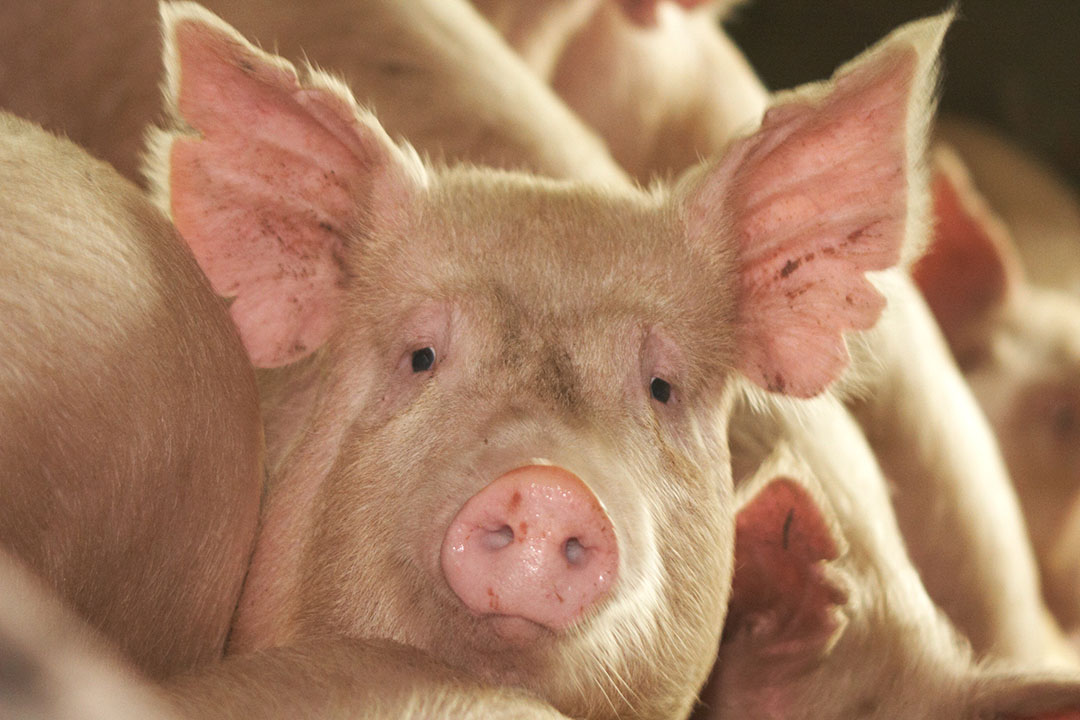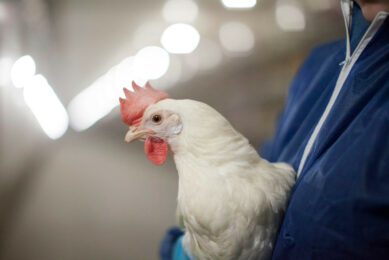The maternal influence on intestinal health

Intestinal health is a prime focus for all species. Interventions usually start at an individual level via feed just prior to challenging periods, like weaning in piglets for example. A more cost-effective way to maintain gut health could be via the mother.
The intestinal tract is without a doubt fundamental for both feed efficiency but also health in all species. There is a variety of options to improve gut integrity from the illegal, over the socially less accepted like antibiotic growth promoters (AGPs), to current alternatives such as pro- and prebiotics, butyrates and others.
Gut health is always at risk in very young animals whether they are birds or calves or at weaning in piglets. Most approaches to maintain gut health start during those periods. But maybe this is starting too late? Maternal effects can be just as relevant to gut health and are often overlooked. This is most pronounced in production animals where the offspring is reared by a different unit or owner, from the owner of the parent stock in birds or sows.
Pigs
The microbiome
Piglets are born almost with a sterile gut which is then quickly colonised. The organisms that colonise the piglets gut can come from the environment, the feed and the sow. It has been shown by a variety of authors that the dry matter intake until weaning is more from sow faeces than from feed or litter material. If the aim for gut health is to colonise the gut early with a positive, diverse microbiome feeding the probiotic to the sow makes more sense than just adding it to a pre-starter. This is reflected in EFSA’s option to register probiotics in sows ‘for the benefit of the piglet’. Of course, the sow can benefit from a probiotic as well, but the main aim is clearly to enable the piglets to develop a healthy microbiome from the sow’s microbiome.
The structure of the gut
A modern piglet is born early with a minimally developed intestinal integrity. In nature or more traditional systems the microbiome would gradually start producing butyrates which assure gut integrity and this way prevent any pathogens from translocating from the intestine into the animal, such as E. coli. The improved integrity through butyrate production goes hand in hand with improved nutrient absorption. With early weaning and low birth weights in large litters this process is not working optimally, so additional slow release butyrates such as Butipearl can be used to bridge the gap.
Immunity in piglets
A young piglet has naturally no specific immunity of its own, but it is not completely defenceless when it comes to gut health. Via the colostrum, maternal antibodies protect it against the pathogens the sow has encountered. This effect can be reinforced with feed components that trick the sow’s immune system into perceiving a higher disease challenge then there is. This effect has been clearly shown by increased colostral antibody titres in response to an in-feed supplementation of the sow with algal derived beta-glucans (e.g. Aleta). This also induced a rapid maturation of the non-specific immunity of the piglet by supplementation of the sow.
Poultry
Maternal effects are not often considered for birds, due to the physical separation of hen and chick. Typically, different farms are involved as well. However, the effects are as crucial for intestinal health in birds as they are in mammals.
The microbiome
If anything, the microbiome development in poultry is more challenging in early life than in a mammal. Without the presence of the parent bird there is less exposure to beneficial flora, as the desirable lactobacilli, in particular, do not survive egg incubation well. Nonetheless the egg shell can influence the developing microbiome of young birds. Clean eggs will always result in better chick quality, as there is less risk of an early introduction of potential pathogens such as Clostridium spp. for example. In addition to managing parent stock for dry faeces and good egg shell quality a probiotic in the starter feed can be very beneficial to establish a health microbiome.
The structure of the bird’s intestinal tract
Healthy birds produce sufficient butyrate in their caeca to maintain gut integrity. This is not influenced by the parent stock. In an immature microbiome, or simply when feed intake is very high (broilers), the supply along the intestinal tract might not be sufficient. Those birds will benefit from additional butyrate; the benefit can be seen both in improved gut integrity and nutrient absorption. One measure of gut health, villus height, already showed improvements when only 100g Calciumbutyrate per ton of feed were added in a specific slow release encapsulation (Butipearl), see Table 1.
Immunity
Eggs are hatched artificially in commercial production. Nonetheless the health status of the parent stock can have an influence on the quality of the chicks. While age and incubation are standard parameters to assess potential chick quality, immune parameters are neglected. Antibodies are transported from the blood of the hen into the egg yolk to provide immunity to the chick. Today we use this process to produce antigen-specific yolk antibodies for vaccinations, however the primary reason for the antibodies is to provide immunity to the chick. Stimulating IG-Y in parent stock is an exciting and new option to assure gut health in newly hatched birds. Secondly, an in-feed supplementation of newly hatched chicks with algal derived beta-glucans can concentrate and activate immune cells in the intestinal wall, preparing the chick for an intestinal pathogen before the first challenge even arrives.
Ready for challenges
Gut health is often portrayed as a challenge, but it should not be. Healthy animals are self-regulating towards a highly functional gut for nutrient absorption and pathogen control. In modern production animals and systems these controls do not always work optimally. To compensate for this, feeding a probiotic and immune modulator to the parent stock or sow is very helpful.
On gut integrity the influence of the parent stock or sow is less. This depends on sufficient internal butyrate production and distribution. Until this is established, additional slow release butyrate can be a very cost-effective way to ensure gut health. The most overlooked way to wean healthy piglets and have productive young poultry is through the mothers. Speaking to the sow or parent unit can have remarkable effects on gut health in the offspring.
References available on request
Author: Susanne Kirwan, Kemin











